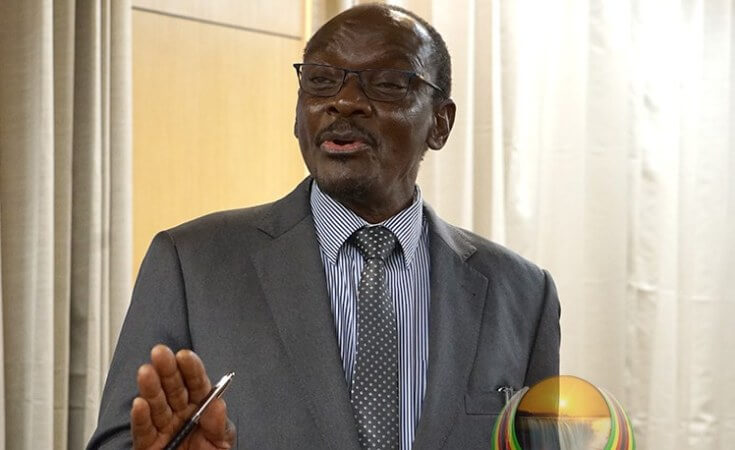
Zimbabwe Vice president’s Resignation Suggests Deep Party Intrigue
The dramatic resignation of Zimbabwe’s Vice President Kembo Mohadi after he was embroiled in a sex scandal has exposed fissures in the new administration following claims that intelligence services were behind his downfall.
The 71-year-old politician resigned from government in shame last week after audio recordings of his involvement with a married women leaked.
He said he was a victim of blackmail by his political enemies, who he claimed used espionage to target him.
Mr Mohadi vowed to fight those behind the “information distortion, voice cloning, sponsored spooking and political sabotage” in court.
President Emmerson Mnangagwa said he did not expect the resignation, but has not commented directly since the scandal emerged a fortnight ago.
Rashweat Mukundu, a Harare-based political analyst, said there was a bigger story behind the VP’s resignation that went beyond the sex scandal.
“The Mohadi story tells us that political factionalism and power realignment in Zanu PF post the November 2017 coup is still very much underway,” he said.
President Mnangagwa came into power three years ago after the military toppled long time ruler Robert Mugabe.
He appointed Mr Mohadi, a long serving State Security Minister under Mugabe and former army boss Gen (Rtd) Constantino Chiwenga, as the two co-vice presidents.
There have been reports of a power struggle between the military and civilian elements in the new administration.
“That was an internal job to serve and advance a political interest. We will see when Mnangagwa appoints a replacement. There will be an indication of who exactly is benefiting from (Mr) Mohadi’s fall and who might have been behind the moves against (Mr Mohadi,” Mr Mukundu said.
Zimbabwe has had two state vice presidents since 1987 following a peace pact that ended a military campaign in south-western parts of the country that left thousands dead.

